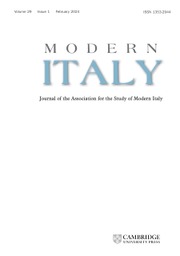Contentious Episodes in the Age of Austerity
Based on extensive data and analysis of sixty contentious episodes in twelve European countries, this book proposes a novel approach that takes a middle ground between narrative approaches and conventional protest event analysis. Looking particularly at responses to austerity policies in the aftermath of the Great Recession (2008–2015), the authors develop a rigorous conceptual framework that focuses on the interactions between three types of participants in contentious politics: governments, challengers, and third parties. This approach allows political scientists to map not only the variety of actors and actor coalitions that drove the interactions in the different episodes, but also the interplay of repression/concessions/support and of mobilization/cooperation/mediation on the part of the actors involved in the contention. The methodology used will enable researchers to answer old (and new) research questions related to political conflict in a way that is simultaneously attentive to conceptual depth and statistical rigor.
- Detailed account of key austerity episodes and institutional reforms in the aftermath of the Great Recession in Europe (2008–2015)
- A systematic framework to research and analyze contentious politics
- Provides researchers with a novel methodological tool to study interactions between governments, challengers, and third-party actors
Reviews & endorsements
'True methodological breakthroughs are rare in any field of study. But in Contentious Episodes in the Age of Austerity, Abel Bojar et al. have given us just that. All scholars concerned with the dynamics of contention will need to take account of the exciting new methodology - ‘contentious episode analysis’ - clearly and compellingly sketched in this groundbreaking book.' Doug McAdam, Ray Lyman Wilbur Professor of Sociology, Stanford University
'Finally, a book that methodologically and systematically places the interactional dimensions of contention centrally in its focus! This book boldly cuts new ground, and in doing so, opens up new possibilities for analysis by allowing us to compare contentious interactions within and across episodes.' Mark R. Beissinger, Henry W. Putnam Professor of Politics, Princeton University
'The book breaks new ground in the study of social protest. First, there’s a comprehensive take on diverse and contentious European protests against harsh austerity after the Great Recession. Even more, the authors pioneer a new approach by considering the interaction of authorities and different challengers in a series of distinct episodes. It’s a new classic.' David S. Meyer, Professor of Sociology and Political Science, University of California, Irvine
'Every so often, social scientists invent new ways to measure and analyze social movements, most of which, however, have a very short half-life. But growing out of ‘protest event analysis,’ the stock-in-trade of students of contentious politics since Tilly’s innovations in the 1970s, Bojar, Gessler, Hutter, and Kriesi have produced incremental improvements that amount to a new method - ‘contentious episode analysis.’ Applied to a major comparative dataset, and combining semi-automated and intelligent human coding, their innovations promise a major innovation for the study of contentious politics.' Sidney Tarrow, Author of Power in Movement and Movements and Parties: Critical Connections in American Political Development
Product details
May 2023Paperback
9781009002011
350 pages
228 × 151 × 21 mm
0.53kg
Available
Table of Contents
- Part I. A New Approach for the Analysis of Contentious Episodes:
- 1. Introduction: A new approach for studying political contention – contentious episode analysis Hanspeter Kriesi, Swen Hutter, Abel Bojar, Argyrios Altiparmakis, Theresa Gessler, Sophia Hunger, Katia Pilati and Julia Schulte-Cloos
- 2. Selecting and coding contentious episodes Hanspeter Kriesi, Swen Hutter, Abel Bojar, Argyrios Altiparmakis, Theresa Gessler, Sophia Hunger, Katia Pilati and Julia Schulte-Cloos
- 3. The economic and political context of the episodes Hanspeter Kriesi and Sophia Hunger
- Part II. Varieties of Contention:
- 4. Conceptualizing, measuring and mapping contentiousness Swen Hutter and Theresa Gessler
- 5. Actors configurations and coalitions in contentious episodes Swen Hutter and Theresa Gessler
- 6. Action sequences and their dynamic indicators of contention Abel Bojar and Argyrios Altiparmakis
- 7. Outcomes – government responsiveness Julia Schulte-Cloos and Sophia Hunger
- Part III. Dynamics of Interaction:
- 8. Interaction dynamics in contentious episodes: path-dependence, tit-for tat and constructive mediation Abel Bojar and Hanspeter Kriesi
- 9. The governments' reactions to challengers and third-parties Hanspeter Kriesi
- 10. The effect of repression on protest Katia Pilati
- 11. Turning points Abel Bojar
- 12. The Greek case Argyrios Altiparmakis
- 13. Conclusion Abel Bojar, Hanspeter Kriesi and Swen Hutter.








